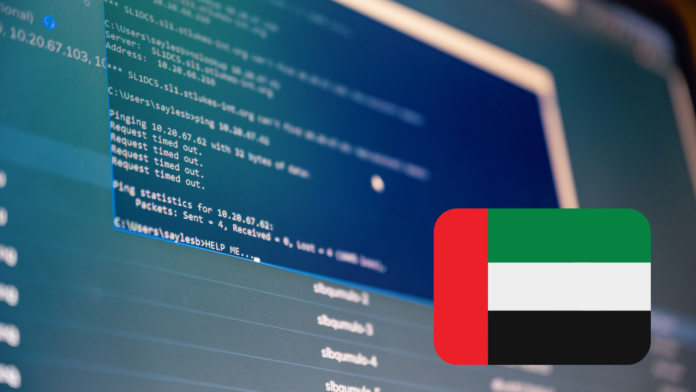A recent cybersecurity report has revealed a critical vulnerability within the United Arab Emirates’ (UAE) digital landscape.
A staggering 155,000 remotely accessible network devices and applications were discovered exposed online, lacking proper security configurations and susceptible to cyberattacks. This incident highlights the ever-present threat actors pose and the importance of robust cybersecurity practices.
Misconfigurations Leave UAE Networks Vulnerable:
The “State of the UAE Cybersecurity Report 2024,” published by cybersecurity firm CPX, identified a concerning number of misconfigured network devices and insecure applications. These exposed assets create an entry point for malicious actors to infiltrate systems, steal data, disrupt operations, or launch further attacks. The report attributes 27% of security incidents handled by CPX’s security operations center (SOC) to misconfigurations, emphasizing the critical role proper configuration plays in cybersecurity.
Insider Threats and Global Reach of Cyberattacks:
The report also sheds light on the evolving threat landscape. While traditional concerns about regional adversaries remain, the report emphasizes the global nature of cyber threats. Financial motivations topped the list, with 29% of attackers driven by the desire for financial gain. Insider threats also emerged as a significant concern, accounting for 21% of incidents. Businesses and government agencies need to be vigilant against all forms of cyberattacks, implementing robust security measures and fostering a culture of cybersecurity awareness among employees.
10 Actionable Tips to Fortify Your UAE Network Defenses:
In the wake of this concerning discovery, here are 10 practical steps organizations in the UAE can take to bolster their cybersecurity posture:
- Patch Management: Prioritize timely installation of security updates to address known vulnerabilities and minimize the attack surface.
- Software Scrutiny: Carefully evaluate the security posture of software vendors and prioritize solutions with a proven track record of addressing vulnerabilities promptly.
- Layered Security: Implement a multi-layered security approach that combines firewalls, intrusion detection/prevention systems (IDS/IPS), and endpoint protection software to create a comprehensive defense.
- Threat Intelligence: Stay informed about the latest cyber threats and vulnerabilities and adapt security measures proactively.
- Background Checks: Utilize background check features offered by platforms like Airbnb (where applicable) for added peace of mind regarding potential guests or collaborators.
- Strong Passwords & MFA: Enforce strong and unique passwords for all accounts and consider multi-factor authentication (MFA) for added security.
- Security Assessments: Conduct regular vulnerability assessments and penetration testing to identify and address potential weaknesses in your systems.
- Employee Training: Educate employees on cybersecurity best practices, including identifying phishing attempts and reporting suspicious activity.
- Incident Response Plan: Develop a comprehensive plan outlining procedures for responding to cyberattacks, minimizing damage, and ensuring swift recovery.
- Secure Remote Access: Implement strong security measures for remote access solutions, including multi-factor authentication and network access controls.
Conclusion
The recent exposure of a significant number of UAE network devices and applications underscores the critical need for proactive cybersecurity measures. By following these recommendations and fostering a culture of security awareness, organizations in the UAE can significantly reduce their cyber risk and safeguard sensitive information.


